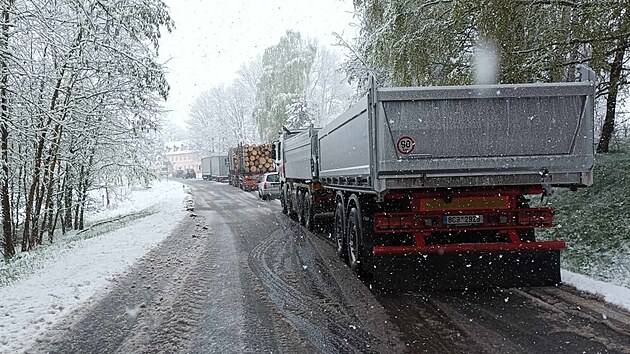One of the top managers at the Czech state nuclear watchdog has been given a key role in preparing the decisive phase of European “stress tests” for nuclear power plants in a move that has been widely welcomed by those with pro-nuclear positions.
Vice president for management and technical support at the State Office for Nuclear Safety (SÚJB) Petr Krs has been named the number two on the European committee which will review existing nuclear plants’ safety provisions, the daily Hospodářské noviny reported Thursday, citing the office’s head, Dana Drábová. She said the decision had been taken in Brussels at the start of the week.
“The whole project will in fact be administered by Krs, the organizational aspects and of individual evaluations and coordination process over the following six months,” the paper added, pointing out that the head of the committee is French atomic power expert Phillipe Jamet.
France has Europe’s largest number of nuclear plants with a long-term energy strategy being drafted at the Czech Ministry of Industry (MPO) envisaging the Czechs relying on nuclear for a similar 80 percent of electricity production. Over recent years, governments in Paris and Prague have marked themselves out as Europe’s biggest nuclear power lobbyists.
‘This is a great victory for Czech diplomacy when a Czech representative will take part in an important decision about European nuclear energy.’
“This is a great victory for Czech diplomacy when a Czech representative will take part in an important decision about European nuclear energy,” commented the government’s special representative overseeing the expansion of the Temelín nuclear power plant, Václav Bartuška.
However, the report of a Franco-Czech tandem taking the lead in the nuclear stress tests has been greeted with derision in Czech environmental circles. “It would have been interesting if they had nominated a German and an Austrian,” former Green Party Environment Minister and Green Party leader, Martin Bursík told Czech Position, referring to the anti-nuclear stance of both countries.
‘Stress test’ skeptic
“I have been skeptical about the stress tests along with most environmental NGOs and Green parties in Europe from the start,” Bursík added, speaking in the margins of a Prague conference about whether renewable or nuclear would have a bigger role in future energy production.
“I saw the first Czech report that was submitted for the stress tests, just a couple of pages, and I do not understand how the subject could be so underestimated in such a document,” the two-times environment minister said. “The fact that the Dukovany nuclear plant has no concrete containment and could be the subject of an aerial terrorist attack is a serious factor but it is not covered in the report because terrorist threats are not covered under the safety review,” Bursík added.
Backers of Czech nuclear power have been concerned that the stress tests could pick on the aging Dukovany power plant, the biggest single power source in the Czech Republic, with pressure exerted by Germany and Austria to close it down.
‘It would have been interesting if they had nominated a German and an Austrian.’
SÚJB head Drábová admitted such pressure had been exerted last month but described it as an emotional and not reasoned reaction following the nuclear accident at Japan’s Fukushima nuclear plant. Dukovany’s operator, state-controlled electricity company ČEZ is seeking to extend the plant’s operating life for at least another 10 years, when current permits at the four reactors start to expire in 2015.
Initial reactions to national evaluations of nuclear plants should be given by the end of the year with the final EU reports due out in April 2012.
Former minister Bursík told the conference “Green Energy and Nuclear Power: which belong in the Future?” that a real debate on Czech energy policy had not taken off in the country. He argued that Germany’s decision to phase out all nuclear power by 2020 should act as an inspiration for the Czech Republic.
Germany planned to increase renewable to make up for some of the power production loss from nuclear and renewable power was already the second most important industrial sector in the country following the auto industry. Recent research showed that various types of renewable could combine together to form a balanced production base and that wind and solar power should not be earmarked as disruptive energy sources because of the power surges they created in the grid, Bursík added.
Cost, contract overruns
The bill for constructing two new nuclear power plants in Finland and France were currently 100 percent in excess of the original budget and had long ago failed to meet building deadlines, he pointed out, yet ČEZ was still pressing ahead with plans for two new reactors at its existing Temelín site. “What makes ČEZ believe that it can do better than France, one of the most experienced countries regarding nuclear technology, and Finland?” Bursík added.
The three companies lining up for the massive Temelín contract, US-based Westinghouse, France’s Areva and the joint venture of Russia’s Atomstroyexport and Czech Škoda JS should get their tender documents from ČEZ laying out its conditions and the terms for bids by the end of the month.




